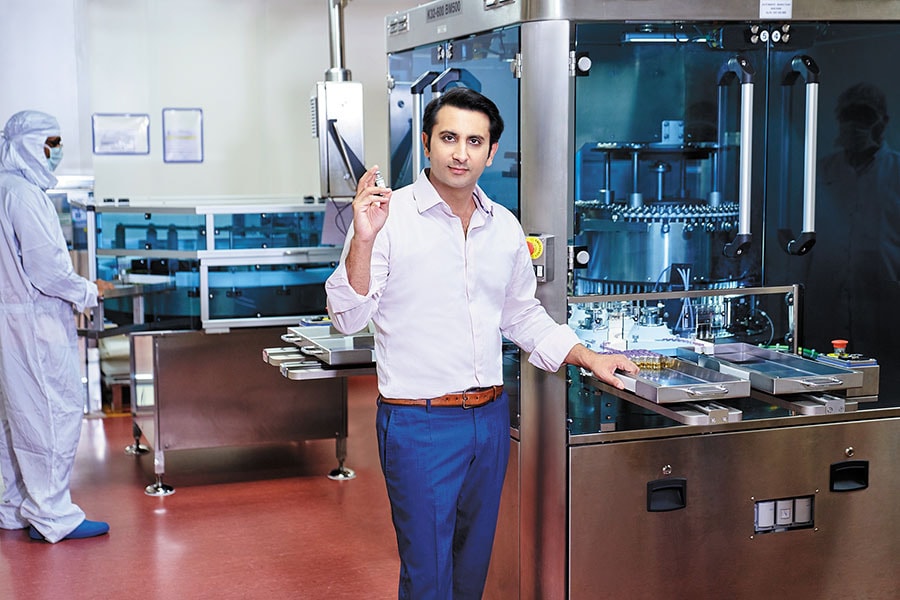Adar Poonawalla's vaccine gamble shows big promise
Pune-based Serum Institute of India decided to go big on a vaccine for Covid-19 much before it had even completed clinical trials. The Oxford vaccine is now being deemed as 'safe' in early trials


 Image: Avinash Gowariker
Image: Avinash Gowariker
Adar Poonawalla’s gamble on a coronavirus vaccine seems to be paying off, with early trials showing positive results
Placing a bet perhaps comes naturally to Adar Poonawalla. After all, the Poonawalla family has a rich legacy of having bred horses that have rewritten the rules of horse racing in India. In all likelihood, it’s that knack that helped the 39-year-old CEO and owner of the Pune-based Serum Institute of India go big on a vaccine for Covid-19 much before it had even completed clinical trials.
Now, that bet seems to be paying off. On July 20, the medical journal The Lancet said the ChAdOx1 nCoV-19, commonly known as the Oxford vaccine, is safe and induces an immune reaction to fight Covid-19 after the vaccine completed its phase I and phase II clinical trials. “ChAdOx1 nCoV-19 showed an acceptable safety profile, and homologous boosting increased antibody responses,” the Lancet report said.
Poonawalla had taken a massive gamble, first by signing a deal with British pharmaceutical company AstraZeneca to manufacture and sell the vaccine in India and other developing countries. Then, he decided to sacrifice a facility meant for producing another lucrative vaccine to manufacture the Oxford vaccine, in an attempt to stockpile the vaccine by the end of the year.
“The trials have shown promising results and we are extremely happy about it,” says Poonawalla. “We will be applying for the licensure trials to the Indian regulator in a week. As soon as they grant us permission, we will begin with the trials for the vaccine in India. In addition, we will soon start manufacturing the vaccine in large volumes.”
The group has also partnered with American biotech firm Codagenix and Austria"s Themis to potentially manufacture vaccine candidates that are still in development. “We are working with multiple partners across the US, UK, and Europe on four different vaccine candidates,” Poonawalla had told Forbes India earlier.
For now, the vaccines are likely to cost around ₹1,000 per dose. Poonawalla had said he expected the government to purchase them and then undertake mass inoculation. “We are not asking for any money for dedicating a ₹700-crore manufacturing plant, including the manpower, energy cost, and other things from the government,” he said. “All we are saying is buy the vaccine and give it free to everyone.”
First Published: Jul 29, 2020, 11:56
Subscribe Now